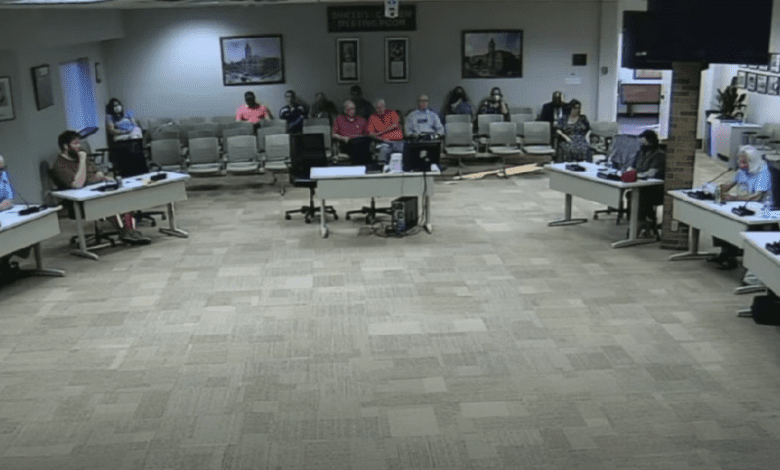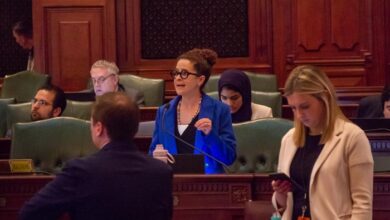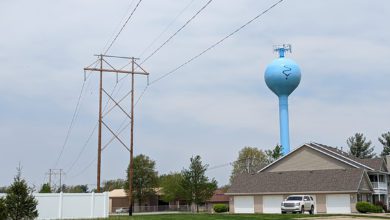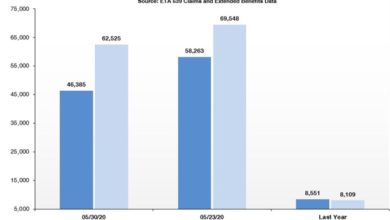Sangamon Valley Public Water District employees talk about working conditions under former boards

They’ve been silent for decades, but employees of the Sangamon Valley Public Water District (SVPWD), both current and former, are using their voices to talk about working conditions that have been oppressive and unprofessional.
Perhaps it was because they came to a breaking point when three board members (Mike Larson, Mike Melton and Bob Buchanan) and one former board (Bud Parkhill) member circulated a petition to have SVPWD board members elected; fearful that the same board members who caused unsupportive conditions would once again be at the helm. Then maybe the straw broke when a current board member, Mike Larson, posted false information about upcoming agenda items on a local Facebook group.
The employees are not afraid to say why it is that they feel like they can use their voices now. They feel that the makeup of the board appointed by the Champaign County Board is diverse, inclusive and focused on providing a reputable work environment without the fear of retribution.
Three of the district’s seven employees, representing six of the employees overall, came to the Champaign County Board Committee of the Whole meeting to oppose the reappointment of Mike Larson on May 10. Employees cited Larson’s post that caused panic among customers who believed their water rates were going up annually and the petition to elect board members, which was circulated under the pretense that recently appointed board members were “from Chicago;” that the district was being sold to the University of Illinois or Illinois American Water; or that water rates would more than double from $40 a month to $90.
“Ever since these events occurred, we have been faced with unruly customer complaints, questions and undue stress at work targeted at us directly,” the head of the operations department stated.
“Now that the petition is public, we are still experiencing customer complaints both during our workday and outside of our working hours. They should not carry over to our day-to-day life and work responsibilities.”
Not only have community members contacted SVPWD employees outside of working hours, board members have been known to do the same, sometimes controlling what employees private life, or life “off the clock” looked like.
SVPWD did raise the water and wastewater rates in 2021 after not doing so since 2013, but that adjustment only made SVPWD rates similar to those charged by the Village of Mahomet, which has raised rates in consecutive years. The rate adjustment was made to cover capital projects and to bring employees’ pays up to market rate, similar to what is being paid by the Village of Mahomet, Monticello and LeRoy, after a two-year study by the personnel committee had been completed.
Being compensated at a fair rate has always been an issue for SVPWD employees. Not only was the 2022 budget approval process contentious when board members Larson, Mike Melton and Bob Buchanan opposed a few employees getting the adjustments, board records show that rate increases have often been put to the side or wage rates have been frozen for extended periods of time.
The few long-time employees that SVPWD kept said that the low wages made it hard to keep reputable employees at the water district. In a field that requires trained employees to produce water and wastewater treatment that meets EPA approval, the turnover and employees that were pieced together placed additional stress on the job.
Still, all of the employees appreciate how General Manager Kerry Gifford fought for fair pay and benefits for the last 15 years. It was something that held their loyalty over their years.
“It’s not 1966 anymore,” one employee said.
“It’s what they (the board) believes the people are worth,” another said.
Recent board changes, that have seen members who have spent decades on the board not reappointed, have moved the needle some. Gifford said that board chairman Meghan Hennesy has not only helped to adjust wages, but also make them equal between genders.
It’s a consensus among employees that board members decided employee pay based on what they believed the employee was “worth.” Part of that was a “girls don’t deserve to make any money,” philosophy. Most of this discussion happened in closed session.
Closed session to discuss employee compensation was voted down for the first time in decades with a 4-3 vote in a November, 2021 board meeting. With the budget approval, market adjustments, including the required minimum wage adjustments, were made.
While the Champaign County Board Committee of the Whole members agreed that Larson’s resume, including employment as the Director of Utilities Production at the University of Illinois Facilities & Services, may be helpful to the water board, its job was also to consider the voice of the employees who spoke up about working conditions.
Not only did employees talk about how Larson’s actions with the petitions and Facebook post affected their daily work now, another female employee wrote a letter signaling how uncomfortable she was when Larson asked her to meet outside of work after a November, 2021 board meeting to talk about “career development.” According to other employees interviewed, they had not been asked to do the same.
“Mr. Larson had not asked this of me during the previous year’s budget time period,” she wrote. “In fact, Mr. Larson had not spoken to me individually at all outside of the board meeting up until this point. I respectfully declined his invitation.”
A document acquired via FOIA showed that the female employee filed this report to her superior months before disclosing this information to the Champaign County Board.
This wasn’t the last time that her wages and employee performance were discussed by a board member, though. Recently, trustee Buchanan has reached out to former SVPWD employees to discuss her and GM Gifford’s ethical behavior. Employees interviewed, both current and former, report that they have never seen either employee do anything ethically or criminally wrong.
Although Brad Passalacqua (R-District 4), who worked with Larson for 15 years at the University of Illinois said his work and integrity are never questioned, the Committee voted to not appoint Larson to the SVPWD board for another five-year term. Passalacqua voted in favor of Larson’s appointment.
After reading part of the letter from the female employee with a female voice, Emily Rodriguez (D-District 8) said, “I read this in a very particular way with career development in parentheses. I know exactly what that means. I have experienced that sort of conversation.
“It is too important a service to…. to just kind of leave employees to deal with to navigate a hostile work environment. That to me is really concerning.”
Jim Goss (R-District 1) said that the accounts posed by the employees were hearsay, calling them “slander.”
Eric Thorsland (D-District 7) added, “The thing that I think that we have to remember here is that we have more than one person who said that there’s been some issues with Mr. Larson, and how he’s conducted his public face as a board member of the (SVPWD). I hate to see employees who are responsible for keeping this water drinkable and clean and safe being harassed by the customers that they serve. And it sounds like this may have been generated from some commentary that came from this particular board member.”
The Champaign County Board recently granted SVPWD with $500,000 to begin realizing an extension of water mains north to the people who still, six years later, are living with contaminated water after the People’s Gas Leak at Manlove Field. State money is still pending.
Thorsland said that the Champaign County Board has a vested interest in making sure the funds are spent appropriately.
Chris Stohr (D-District 10), who has worked in water and wastewater treatment for 40 years, said he’s spent the last nine months interviewing SVPWD employees and has toured the facility.
“As the District transitions from an entity that provides rural wastewater and water and wastewater services for a mobile home park and a small residential subdivisions to one that requires more educated, trained workforce with specialty certifications, continuing education, updating of expertise for water and wastewater treatment to protect the health and safety of more than 3,000 subscribers. The operation of such a sophisticated technical facility requires more than the rudimentary knowledge on electrical, plumbing and computers.
“The staff employed for this complex work rightly deserve the respect, compensation and support that this technical work demands.
“However, it appears from what I’m hearing, long serving members of the Board of Trustees including the nominee under consideration are apparently wanting to defer operating costs because of in a recent abrupt increase in following a hiatus of rate adjustments, and are not recognizing that district’s staff as true professionals, deserving commensurate compensation. There appears to be a division regarding the priority for succession planning for the small staff of only seven, which provide 24-hour a day 365-days-a-year services for the district. This is more than a mere disagreement on bylaws, bad behavior or personal insults.
“It is about recognizing the increasing requirements for a professional water and wastewater management staff in an increasingly sophisticated world to ensure confidence and safety of potable water and properly treated wastewater services.”




